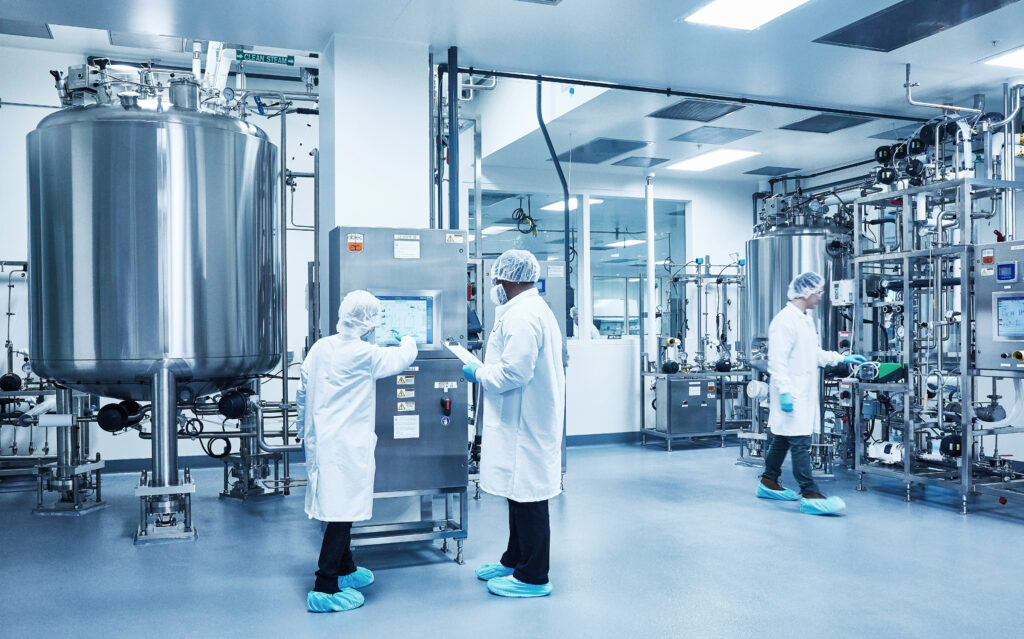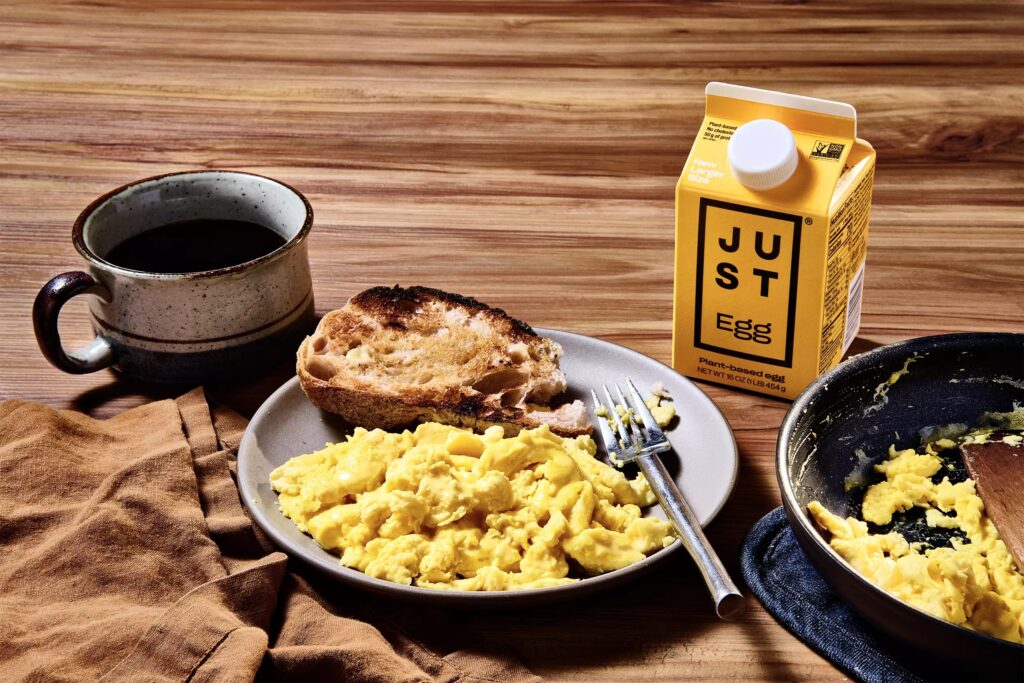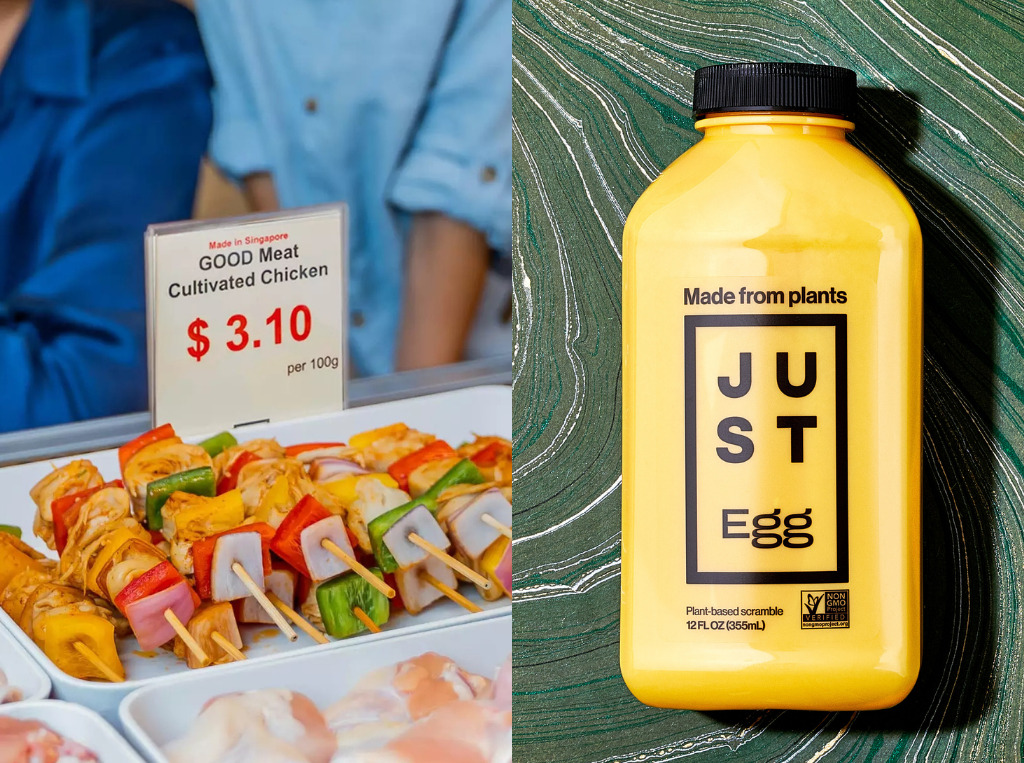Eat Just’s Josh Tetrick On the Company’s Future: ‘Really Hard is Different Than Impossible’
7 Mins Read
We speak to Eat Just co-founder and CEO Josh Tetrick about recent concerns around the Californian food tech’s financial health and what the future looks like for cultivated meat.
Eat Just, the Californian food tech that makes the JUST Egg plant-based egg and owns the cultivated chicken company GOOD Meat, is facing allegations about its financial health.
The same day Tetrick was named in the TIME100 Climate list last week – a roundup of the most influential business leaders and the only alternative meat founder to be included – the company was cited in a Wired article that alleged it is facing several financial and legal challenges.
In September, Bloomberg reported that Eat Just received $16M in capital injection from existing investor VegInvest/Ahimsa Foundation and suggested that the company was facing a cash crunch. According to Bloomberg’s reporting, neither side of Eat Just’s business – vegan eggs or cultivated meat – is profitable, and the company has been “unable to pay bills from some of its business partners”, citing anonymous sources familiar with the matter.
Wired’s reporting alleges that Eat Just – which has raised over $850M in funding from investors including UBS O’Connor, Qatar Investment Authority and Charlesbank Capital Partners – is the subject of at least seven lawsuits since 2019, has failed to pay its bills to multiple parties while continuing to commit to large projects in the meantime and writes that former employees claim that the pressure to achieve industry firsts led to poor financial planning.
Tetrick painted a different picture via email, telling Green Queen: “Eat Just, Inc. includes both JUST Egg and GOOD Meat, with JUST Egg making up 99.9% of the company’s current revenue. JUST Egg experienced a 173 percentage-point improvement in EBITDA in the first half 2023 vs full year 2022, and an 80 percentage-point improvement in gross margin in the first half 2023 vs full year 2022. Our business plan is on track to achieve break even in 2024, with half of our current SKUs selling at a positive margin today.”
‘We feel pressure to scale our impact’

In May 2022, Eat Just said it had teamed up with bioreactor company ABEC to build 10 bioreactors with a 250,000-litre capacity each – much larger than any other cultivated meat company had. This August, ABEC filed a court complaint alleging that the project was set to cost Eat Just north of $1B, and the bioreactor company stood to make over $550M from the partnership.
ABEC claims Eat Just was failing to make timely payments by the end of 2022, claiming $61M in unpaid invoices by March 2023. The manufacturer is suing Eat Just for over $100M, which also includes payments for changes to the scope of the bioreactor work.
Wired’s reporting mentioned other lawsuits involving food processor Archer Daniels Midland, lab equipment manufacturer VWR International, and the company’s landlord. Carrie Kabat, Eat Just’s head of communications, told Wired that all these lawsuits have been settled.
Eat Just is involved in some active lawsuits as well. In September, Clark, Richardson and & Biskup Consulting Engineers said the company owes $4.2M for unpaid work for a cultivated meat project, while food processing firm Pearl Crop filed a lawsuit alleging over $450,000 in unpaid invoices. And in October 2022, food processor Dakota Speciality Milling lodged a legal complaint against the company. The company declined to comment on active litigation.
“It was a very poorly kept secret that all employees knew about, that we weren’t paying our bills,” one former employee told Wired. One freelance contractor, who was owed $32,000, was allegedly only paid after they posted about their non-payment situation on social media.
In response to the above, Tetrick told Green Queen: “We felt, and still do feel, pressure to scale our impact – for the people, animals, and planet we serve.” Asked about the allegations around non-paid vendors, he repeated the statement he made to Wired: “The vast majority of our vendors throughout the company’s history have been paid on time and in full. At the same time, we recognise that if even one vendor is not paid on time and in full, it’s not acceptable and it’s on us to make it right.”
‘Focused on the daily execution of our zero-burn plan’

Eat Just says it is no longer working on the ABEC bioreactor deal, or the large-scale cultivated meat facility they were going to be housed in. “At the heart of our large-scale programme was an assumption that we would continue to raise capital for that large-scale facility,” Tetrick told Wired. “That did not happen.”
Speaking about this, Tetrick told Green Queen: “In the past few years we have invested a lot of capital in the design and engineering for a large-scale cultivated meat facility, knowing we would have to raise additional capital to complete the rest of the facility. Because of market conditions, we found ourselves in a position where it became very challenging to raise that additional capital. At this point, we’re re-assessing how we think about a large-scale facility in a more realistic way – which will still be very challenging.
He told Wired that GOOD Meat will shift focus towards finding ways to build cultivated meat facilities that cost less than $200M. “The reality for us now is we need to figure out a way to build large-scale facilities without spending north of half a billion dollars, because it’s simply not viable long-term,” Tetrick said. “There has to be a better way of doing it. And if we can’t figure out a different way of doing it, then what we’re doing won’t work.”
Looking ahead, Tetrick says the company is focused on revenue generation and profitability. “We own 90%+ of one of the fastest-growing categories in alt-protein and sell to millions of consumers – this having only created the category a few years ago,” he tells Green Queen. “JUST Egg, today, is available in more locations than ever before, the product is [of] higher quality than ever before, and we are selling at better margins than ever before. On the GOOD Meat side, we are the first company in the world to receive and sell cultivated meat, and one of only two that have sold cultivated meat in the United States.”
He adds: “Overall, we are focused on the daily execution of our zero-burn plan (i.e., cover operating costs through margin dollars) and serving our customers. If we execute, the company and its missions win. It’ll be challenging and hard – and it’s up to us to get it done.”
‘I hope to be leading the company for a long time’

Some ex-employees question whether he’s the right person to lead the company moving forward, calling his leadership “impulsive and dogmatic” and giving his management a “failing grade”. One staffer alleged he had a “very non-collaborative working style” that can make some uncomfortable.
But others, according to Wired’s reporting which cited multiple sources, praised Tetrick’s ability to fundraise and effectively communicate his ideas. One former staffer added: “Josh never gives up, and I’m sure he’s doing everything he can to bring that round in” and with another concurring that Tetrick “really does believe in the mission”.
In a podcast episode recorded with Green Queen founding editor Sonalie Figueiras earlier this year, Tetrick acknowledged that scaling cultivated meat is hard, but he remains undeterred. “One might say it’s too hard to scale as well, and when I hear that criticism, my answer is it’s really hard to scale it up, but ‘really hard’ is different than ‘impossible’ to scale up,'” he said. “So, it requires a ton of investment, time, energy and technical knowledge to scale it up, but it is still very much within the realm of what is possible to do, it is just a big technical and epic capital challenge.”
Tetrick said his ultimate goal is advancing cultivated protein, adding he wants “to do everything I can, through the people that we hire, technology that I’m pushing, capital that I’m raising, interviews that I’m giving, to increase the probability that cultivated meat as the main source of meat in the food industry happens sooner”.
Asked what his vision of success is, he told Figueiras: “Even though it is really hard, even when there’s only trying, even though it can be really frustrating, even though it can make you nauseous sometimes, I feel that to be useful, to feel like you’re doing everything you can to try and increase the likelihood of something so good happening- that’s what I want, and I hope to be doing this leading the company for a long time. This is where I think I could be the most effective.”
With additional reporting and research by Anay Mridul





